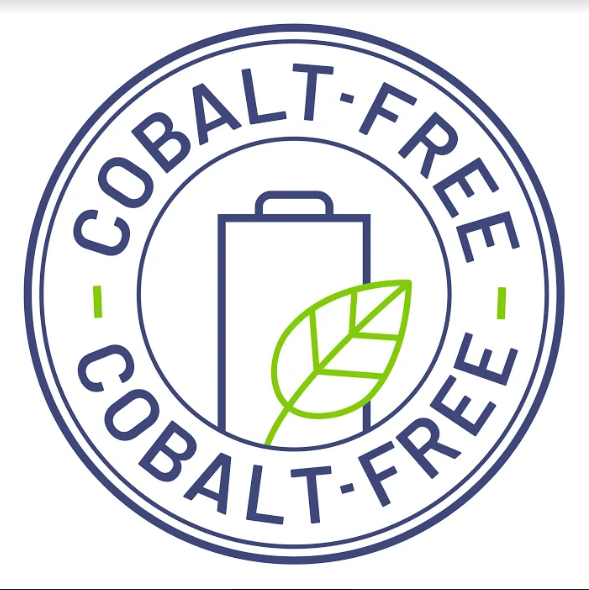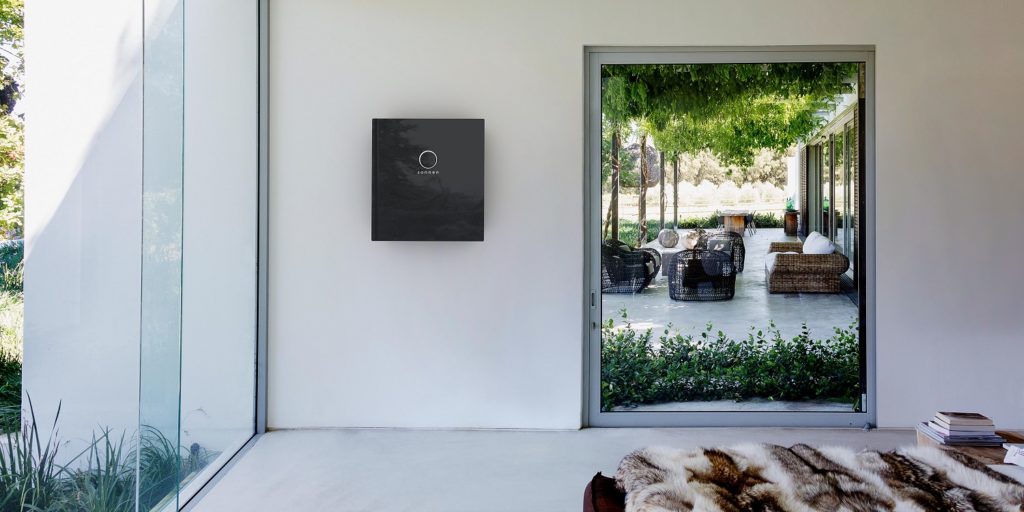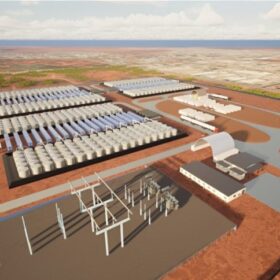Sonnen is focusing on globalizing and ramping up production, even though it has already been criticized within the storage industry. With the market now at a tipping point, sonnen aims to stay on the top as one of the world’s leading providers of battery storage solutions.
“We will have to scale up in the next years,” said Christoph Ostermann, CEO of sonnen. “That’s what our competitors like LG, Tesla or BYD will certainly do as well. A partner like Shell enables us to do this and to realize our strategy of rapid growth even faster.“
In February, almost nine months after investing in sonnen, Shell moved to take over the business. The German competition authorities quickly approved the acquisition, with shares held by sonnen investors to be transferred to Shell New Energy.
“With the support of Shell we will have access to new markets, which before as a young company we could not have had the resources for,” Ostermann told pv magazine. “We want to work with Shell to help progress the transformation toward a long-term clean energy system.“
Only days after acquiring sonnen, Shell moved to take over London-based virtual power plant (VPP) technology provider Limejump, as part of its shift from petrol stations to electricity. Shell solidified its presence in the electric-vehicle market in 2017 by acquiring NewMotion, Europe’s biggest EV-charging network, in addition to U.S. charging-software provider Greenlots in January of this year.
Last year, the oil giant reaffirmed its ambition to halve the net carbon footprint of its operations by 2050. It even unveiled a strategy to ensure the resilience of its portfolio, while adapting to potential changes in the energy system.
“Shell is an energy company with a very broad resume,” Ostermann notes. “That is precisely the reason for finding our place there and we must now use this opportunity to jointly push the energy revolution forward. That is what counts in the end.”
New horizons
After closing financing last May, Shell revealed plans to integrate its EV-charging solutions into sonnen’s VPP business, even though the German company had already developed and launched its own charging solutions. However, the Wildpoldsried-based company claims there is still plenty of room to explore other products and services together with Shell.
“There are many opportunities that occur but which are still in an early stage,” Ostermann says. “Recently, Shell announced that its 700.000 customers of Shell Energy in the U.K. will be able to buy a sonnenBatterie. So that gives us access to a large customer base there.“
The company hopes to reap the benefits of Shell’s market reach, which stretches across more than 70 countries, while also benefiting from other companies under Shell New Energies. But sonnen does not envisage any major changes in its strategy, as it plans to maintain its focus on prosumer-driven energy systems.
“The key technologies for this vision are storage and its connection to form VPPs,” Ostermann says. “This is, of course, a process that cannot be carried out overnight and therefore, it will require different time spans for each of the individual regions for it to be successfully implemented.“
Australian market
Late last year, sonnen began assembling batteries in Adelaide, in a clear demonstration of its strong commitment to the Australian market. The company’s prominent role in supplying storage systems to Australian customers was recently pointed out by Shell Australia Chair Zoe Yujnovich, who noted that the company had already supplied 3,000 battery systems to Australian households, “and had plans for growing their business (in the country).”
“If you look at the storage market worldwide, you will see that prices have fallen significantly, and the technology is mature, which hints that we are on the threshold of a mass market,” Ostermann says.
The batteries the company is producing in Australia will be distributed throughout the local market, but also exported to Asian markets. In particular, sonnen sees Japan as a great option for the future.
Ostermann claims the Australian storage sector is extremely promising. He points to the country’s high electricity costs and booming residential PV market, with more than 2 million systems already installed. He also notes the high solar energy yields throughout the country, as well as a number of state-level subsidy schemes for home batteries.
“An investment in one’s own energy supply pays for itself after four to five years,” he says. “In our opinion, the three key markets for battery storage systems in Australia that will develop particularly well are South Australia, New South Wales and Queensland.“
Cobalt-free initiative
This week, sonnen also launched an initiative to draw attention to the use of cobalt-free lithium-ion batteries in home storage systems, in a bid to encourage other manufacturers to use similar cobalt-free alternatives. It started the initiative in response to rising environmental concerns about the mining of raw materials used in li-ion battery production.

“Our customers are not only taking a sustainable approach when it comes to their energy, but also in the manufacturing inputs of products,” said Ostermann. “Of course, replacing cobalt is no easy task, but where we are able to, we should. This includes batteries in home storage systems, where cobalt-containing materials are proven to be neither technically or environmentally necessary.”
Since its establishment in 2010, sonnen has exclusively used lithium iron phosphate batteries, which do not contain any cobalt. It says greater cycle stability and improved safety makes this particular chemistry the right choice for storage systems used for grid stabilisation in VPPs that require long-lasting batteries.
Due to strong demand from the rapidly developing electro-mobility and energy storage industries, prices have spiked for many raw materials in recent years. In a bid to meet soaring demand, mine operators throughout the world have increased their output, leading to a 30% drop in global prices for lithium and cobalt since the start of the year.
Nonetheless, cobalt mining remains controversial. With around 60% of the world’s supply coming from the mineral-rich Katanga copper belt in the Democratic Republic of the Congo, researchers and human rights organizations argue that cobalt mining takes a high toll on both the environment and the “diggers” who work in the mines, often by hand.
Sonnen’s trust mark, which will assure customers and installers that its batteries are cobalt-free, is freely available to any companies that use cobalt-free lithium ion batteries. The company hopes this will send a clear message to its customers and installers that its batteries do not contain any cobalt.
This content is protected by copyright and may not be reused. If you want to cooperate with us and would like to reuse some of our content, please contact: editors@pv-magazine.com.









Is community energy share available in the UK..???